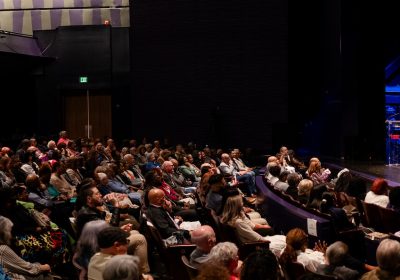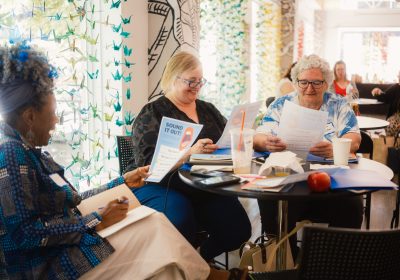By Karen Price
At the Nueva Esperanza school in the Hunting Park neighborhood of Philadelphia, instructors noticed a gap.
Their students were learning about the accomplishments of leaders in different fields, but none of them were Latino.
“Especially when you’re dealing with a majority of Latino kids and all they see are white people who do things in these different fields it’s like, well, that’s not right,” said Bill Rhoads, senior vice president for the Esperanza Arts Center. “There’s lots of great work being done by Latinos, so to make them aware of it is pretty important. It inspires them and it makes them understand that they can do this, and that they come from a long line in history of really fantastic individuals who’ve been part of these fields.”
Nueva Esperanza was not the only nonprofit in Pennsylvania to find an absence of diverse examples of success and achievement being taught in schools. Using funding from their PA SHARP – Sustaining the Humanities Through the American Rescue Plan – grants, Nueva Esperanza and two other Pennsylvania organizations are developing educational tools to feature diverse voices and expand students’ ideas of their own potential and futures. This is the first of a two-part series looking at these organizations and their projects.
“There’s lots of great work being done by Latinos, so to make (students) aware of it is pretty important. It inspires them and it makes them understand that they can do this, and that they come from a long line in history of really fantastic individuals who’ve been part of these fields.”
Bill Rhoads, senior vice president for the Esperanza Arts Center
Esperanza was founded over 30 years ago with a mission to listen to what the community needed then create services to address those needs at the highest level. In addition to running a successful K through 12 charter school and a cyber school, they also operate a two-year college, offer immigration and legal services, run a housing and economic development arm, and are building a medical center that will focus on OB/GYN care.
There’s also an arts center that has space for live performances and video production. When the cyber school director brought up the lack of quality materials highlighting Latino leaders, Rhoads saw an opportunity.
“(I told him) we have mechanisms in place to create very high quality video series with study guides that you can then use in your classrooms, and we can do it in collaboration, so the teachers at the cyber school are working with us to develop curriculum and materials” he said. “We started working on LuminArias.”
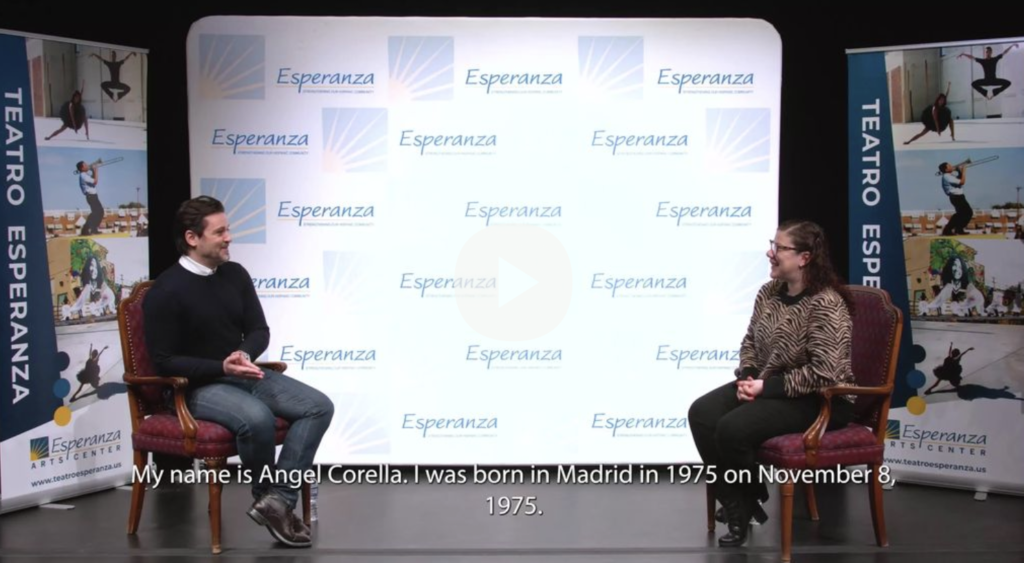
The first series will feature four prominent Latinos in the arts. It was a natural fit, Rhoads said, because they already had relationships with the individuals through the arts center. They interviewed Angel Corella, artistic director of the Pennsylvania Ballet, Gabriela Sanchez, managing director of Power Street Theatre, Suzzette Ortiz, artistic director of Artístas y Músicos Latinoamericanos, and Lina Gonzalez-Granados, conductor of the Philadelphia Orchestra, on camera, and faculty from the cyber school are now designing a curriculum based on those interviews. From there, they’ll develop digital study guides.
The videos and accompanying materials provide the opportunity for students to learn and have conversations about a rich history that otherwise may remain in the dark. Using these tools of the humanities, students will begin to see themselves in these leaders as well as a path to their own success in a variety of disciplines.
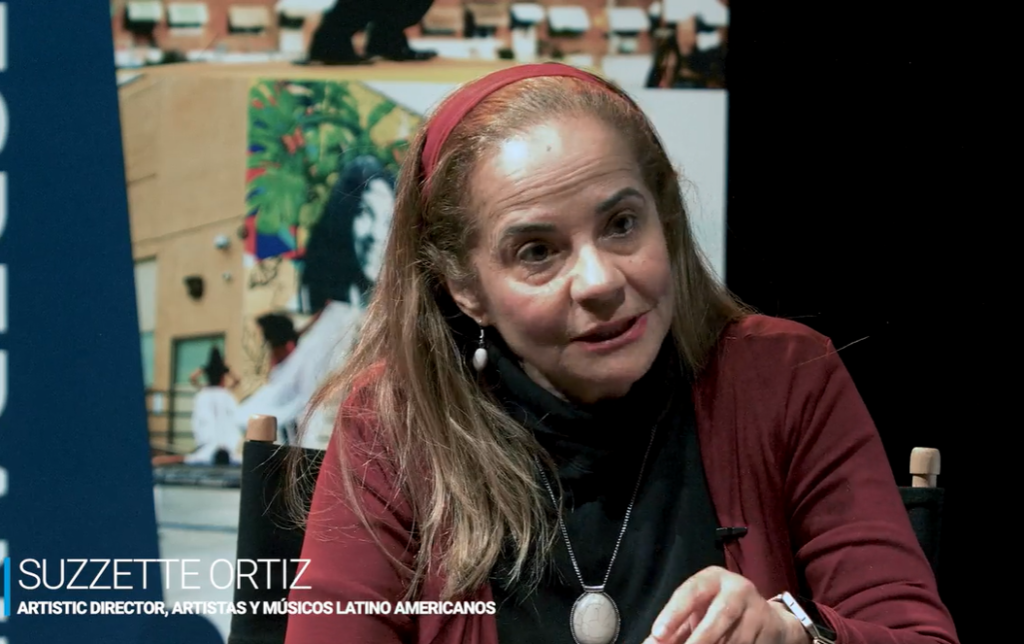
“When we create the study guide one thing that’s really important for the arts leaders is that the guides talk not only about their careers but that they talk about contributions of Latinos historically in their field,” Rhodes said. “So Angel talks about himself but also about the contributions of Latino artists to ballet, which is huge. Lina Gonzalez-Granados talks about Latinos in classical music, especially women from Latin America who are now in those careers and the composers that are also doing amazing work. It’s an opportunity to open doors around not just understanding that person, but understanding Latinos’ contributions in general through that person, through that conversation.”
They’ll begin testing the curriculum in their own schools beginning in January. With additional support moving forward, the goal is to expand the series to the sciences, literature, civil leaders, and other areas and disciplines.
PA SHARP grants are helping nonprofits from across Pennsylvania who are using the tools of the humanities to make positive change in their communities to recover and grow from the challenges of the COVID-19 pandemic. The educational tools that Nueva Esperanza is creating with those funds could serve as a model for the growth of other organizations moving forward.
“This is something we’re hoping to set a tone for,” Rhoads said. “I would love to have people mimic it and say, ‘I see what Esperanza’s doing and I want to do it for local people, too.’ That would be great if that happens. And we often do set the stage for what other BIPOC organizations do in other parts of the country, so we’re very aware of that and want to make sure (the LuminArias series) comes out the way we need it to.”

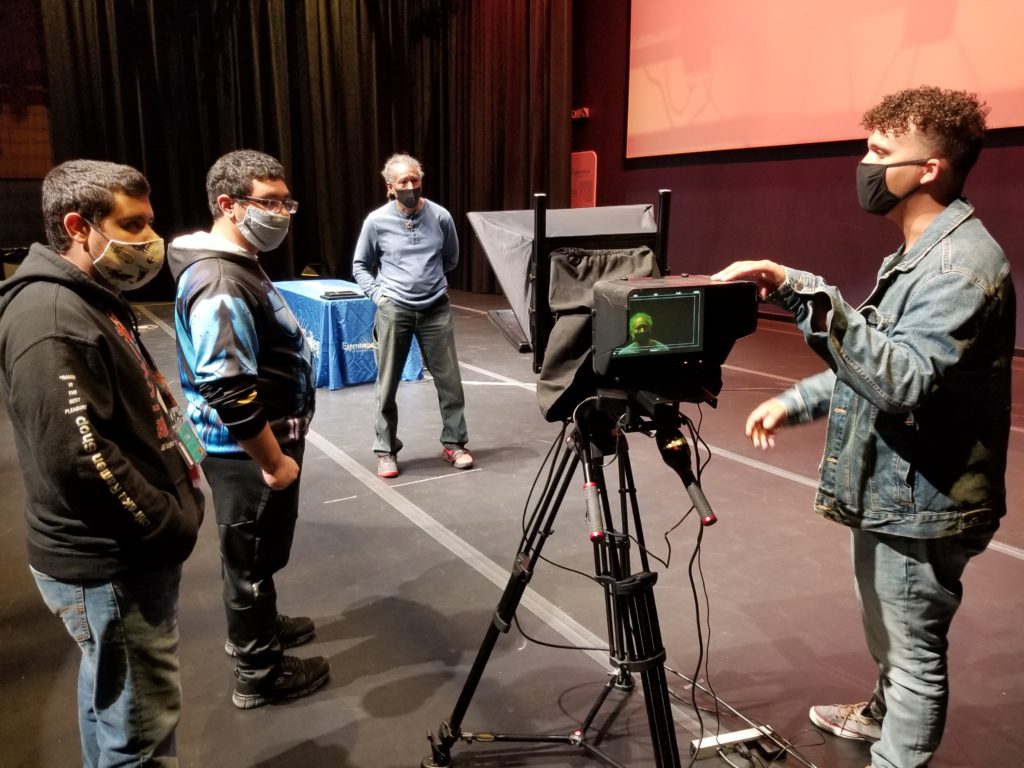
![[color – dark bg] PA SHARP FINAL FILES DB 72dpi [color - dark bg] PA SHARP FINAL FILES DB 72dpi](https://pahumanities.org/uploads/files/elementor/thumbs/color-dark-bg-PA-SHARP-FINAL-FILES-DB-72dpi-phgl7aimtfdpzt2rscvl43ksfv3asbbls19lsvuacw.jpg)

